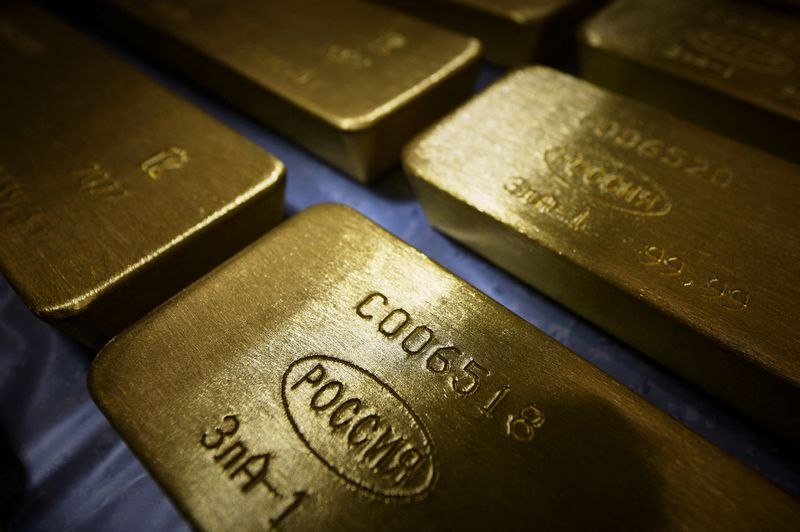By Seher Dareen
(Reuters) - Gold fell on Tuesday as rising U.S. Treasury yields and expectations for more aggressive monetary policy tightening by the Federal Reserve offset safe-haven demand for bullion spurred by possible new Western sanctions on Russia.
Spot gold XAU= was down 0.6% at $1,921.47 per ounce by 2:16 p.m. EDT (1816 GMT). U.S. gold futures GCv1 settled down 0.3% at 1,927.50.
Benchmark 10-year Treasury yields rose after Fed Governor Lael Brainard said she expects methodical rate hikes and rapid reductions to the central bank's balance sheet to bring U.S. monetary policy to a "more neutral position" later this year. (Full Story)
Expectations for the Fed to be a bit more aggressive in fighting inflationary pressures are weighing on gold, considering "she's (Brainard) generally considered to be one of the more dovish members of the Fed," said David Meger, director of metals trading at High Ridge Futures.
Rising U.S. interest rates increase the opportunity cost of holding non-yielding gold.
The dollar .DXY also advanced, curbing overseas buyers' appetite for gold. USD/
"Geopolitical risks will likely be the primary short-term driver and that would help gold widen that trading range ($1,900-$1,950), where you could see prices possibly even going to $1,975," said Edward Moya, senior market analyst at OANDA.
But price action may also be influenced by the release on Wednesday of the minutes from the Fed's last policy meeting, which will be scanned for clues on the trajectory of rate hikes, Moya added
Wall Street indexes fell after Brainard's comments, which spooked investors who were already on edge over the prospect of fresh sanctions on Russia. .N MKTS/GLOB (Full Story)
Spot silver XAG= fell 0.8% to $24.30 per ounce, platinum XPT= fell 1.9% to $968.09 and palladium XPD= fell 1.8% to
$2,234.57.

Standard Charted lowered its 2022 palladium forecast to $2,270 an ounce from $2,763.
While supply concerns and possible disruptions in South Africa could keep the palladium market on edge in the near term, demand losses may eventually weigh on the market later this year, Standard Charted said in a note.